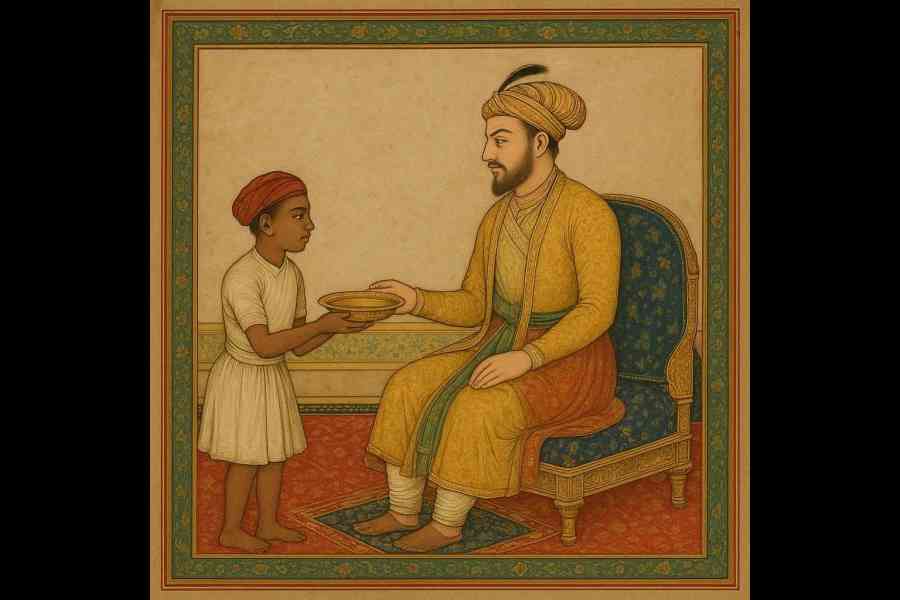Book name- SLAVERY IN THE EARLY MUGHAL WORLD: THE LIFE AND THOUGHTS OF JAWHAR AFTABACHI (1520S–1580S)
Author- Ali Anooshahr
Published by- Oxford
Price- Rs 1,983
In The Way of Kings, Brandon Sanderson writes, “The purpose of a storyteller is not to tell you how to think, but to give you questions to think upon.” Nothing perhaps reflects the fine line writers of non-fiction must tread as much as this sentiment. The non-fiction writer must craft a story within the facts, capturing the readers’ attention and whetting their appetite. Sadly, in Slavery in the Early Mughal World, Ali Anooshahr fails to excite the readers’ inquisitive nature, preferring a dry, academic temper to pontificate on a subject that is clearly close to his heart given that his introduction — where he expounds his reasons for pursuing this microhistorical line of research to explore the subject of slavery in kingdoms bordering the Arabian Sea — is almost as long as a couple of the chapters comprising the book.
The text’s premise itself is simple: it narrates the life of Jawhar Aftabachi, a child slave captured from eastern Europe in the early 1500s by the Ottoman forces, and his experiences as a slave to the Mughal emperor, Humayun. The chronicle has the potential to be as exciting as a Prince of Persia game, but Anooshahr dissociates his narration from any aspect of storytelling; it becomes a spiritless, scholastic cross-examination, and not a particularly novel one at that. Numerous research articles exist on the hierarchy of slaves during the reign of the Mughal emperors. In fact, Anooshahr writes in the fifth chapter that “[a]s remarkable as Jawhar’s memoirs may appear at first glance, they were not exactly unique.” Given that the singular foundation on which Anooshahr has chosen to base this thematically broad analysis is a memoir written by a slave to Emperor Humayun, he spends an inordinately large amount of time comparing his chronicle to that of other ‘subaltern’ narratives, both from the Ottoman Empire and in Mughal India. A case in point is the second chapter, where he repeatedly compares Jawhar’s indoctrination into Islam with that of Konstantin Mihailović — the name is misspelt as “Mikhailovic” in the book — a Serbian janissary who had been captured by the invading Turk forces and trained as a soldier for the Ottoman Empire.
What is particularly grating is Anooshahr’s near-condescending attitude towards his readers, spelling out the implications of each small detail as if explaining things to a toddler. Thus, his explanatory passages are inaugurated by direct questions, such as “Where did these slaves originate?” and “How do we apply this insight to Jawhar?”, which tell the reader what they need to think about. Each chapter begins with the writer explaining the threads he will explore and, like a surgeon explaining the intricacies of an operation to an uninterested family, justifying exactly why each bit of analysis is important.
Make no mistake, Slavery in the Early Mughal World is a vital study; it highlights the significant changes in global interconnections during the sixteenth century and challenges the dominant narratives focused on the trans-Atlantic slave trade. But in the context of the lay reader — and even to an extent, for the expert academic — it is a poorly-written text. It fails to excite the readers’ imagination and is unlikely to feature on any bestseller lists.










